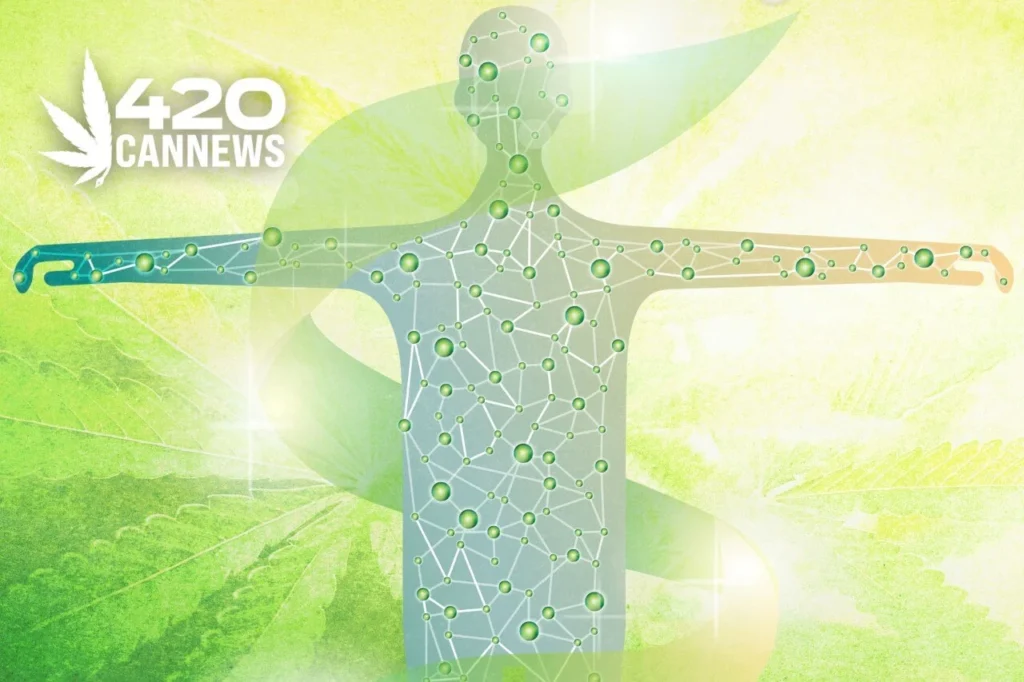In recent years, cannabidiol (CBD) has surged in popularity for its therapeutic potential—without the high associated with its counterpart, THC. This commonly raises a question for frequent CBD users and people simply curious about the products they consume: How long does CBD stay in your system?
Well, the answer is… it depends. There are various factors at play, including dosage, method of consumption, individual metabolism, and frequency of use.
This article will focus on CBD detection times, products containing CBD, and how to get the most out of CBD products.
Key Takeaways
| Factor | Impact on CBD Retention |
| Dosage | Higher doses linger longer in the system. |
| Method of Use | Vaping shows shorter retention compared to edibles or oils. |
| Frequency of Use | Regular use leads to accumulation, extending the detection window. |
| Metabolism | Faster metabolism hastens CBD elimination. |
| Body Fat | CBD stores in fat cells, affecting detection in individuals with higher body fat. |
| Food Intake | Consuming CBD with high-fat foods can prolong its stay in the system. |
| Detection Times | Urine: three to five days, Blood: one to two days, Saliva: a few hours to one day, Hair: months |
Factors Affecting CBD Detection
Dosage
The amount of CBD consumed plays a pivotal role in how long it stays detectable. Larger doses mean the body takes longer to metabolize and eliminate CBD, thus extending its presence in the system.
Method of Use
CBD can be consumed in various forms, each affecting its longevity differently. For instance, vaping CBD allows for rapid absorption but tends to stay in the system for a shorter period compared to edibles or sublingual oils, which have a slower release and longer detection time.
Frequency of Use
Regular CBD use can lead to accumulation in the body. This build-up means CBD might remain detectable for longer periods, especially for those who consume it frequently in high doses.
Individual Factors
- Metabolism: Individuals with faster metabolisms process and eliminate CBD more swiftly than those with slower metabolic rates.
- Body Fat: Given CBD’s lipophilic nature, it tends to accumulate in fat cells. This means people with higher body fat percentages may experience longer CBD retention times.
Genetics: There’s emerging evidence that genetic factors could influence how one’s body processes CBD, though research in this area is still evolving.
Impact of Food
What you eat, when you eat, and how much you eat can all influence CBD’s pharmacokinetics, or how a substance interacts with your body. High-fat foods, for instance, can enhance CBD’s bioavailability, potentially prolonging its effect and detection time.
Detection Times by Test
Different drug tests have varying windows for detecting CBD in the system:
- Urine Tests: The most common form of drug testing, where CBD can be detected three to five days after use but may linger up to 30 days for chronic users.
- Blood Tests: Offer a shorter detection window of one to two days and are less commonly used due to their limited timeframe.
- Saliva Tests: Typically detect CBD from a few hours up to a day, making them suitable for identifying recent use.
- Hair Tests: Can trace CBD use back months, though they are seldom used for CBD detection due to cost and specificity concerns.
Navigating CBD and Drug Testing
Understanding the nuances of CBD detection can alleviate concerns related to drug testing. While CBD itself is unlikely to cause a failed drug test, the trace amounts of THC found in many CBD products could. To navigate this, consumers should opt for products labeled as “THC-free,” such as broad-spectrum CBD or CBD isolate. These products offer the benefits of CBD without the risk associated with THC consumption.
CBD vs. THC
It’s crucial to distinguish CBD’s non-psychoactive properties from the psychoactive effects of THC. Most drug tests target THC, not CBD, due to its intoxicating effects. However, some CBD products may contain trace amounts of THC, posing a risk for test failure. Opting for broad-spectrum CBD or CBD isolate can mitigate this risk.
Legal Disclaimer
Always consult with a healthcare professional before incorporating CBD into your regimen, especially if you’re subject to drug testing or have specific health concerns.
Product Quality
The market is flooded with CBD products of varying quality. To ensure safety and efficacy, choose products that are third-party tested and transparent about their cannabinoid content.
Maximizing the Benefits of CBD
To fully leverage the potential of CBD, consider the following tips:
- Start with Low Doses: Gradually increase your dosage to find the optimal balance that provides the desired effects without unnecessary waste or extended detection times.
- Choose the Right Product: Whether you prefer oils, tinctures, edibles, or topicals, selecting a method of consumption that aligns with your lifestyle and wellness goals is crucial.
- Consult Healthcare Professionals: Especially important for individuals with existing health conditions or those taking other medications, professional guidance ensures safe and effective CBD use.
The Legal Landscape of CBD
As the legal status of CBD continues to evolve, staying informed about the laws in your jurisdiction is vital. While hemp-derived CBD is federally legal in the United States, regulations can vary significantly by state. This legal complexity underscores the importance of purchasing CBD products from reputable sources that comply with regulatory standards.
The Future of CBD Research
The body of research on CBD is growing, offering promising insights into its therapeutic potential. Future studies are expected to further elucidate the mechanisms by which CBD interacts with the body, enhancing our understanding of its efficacy and safety profile.
Conclusion
CBD’s popularity as a therapeutic compound is on the rise, thanks to its potential health benefits and non-psychoactive nature. However, questions about how long CBD stays in the system highlight the need for a nuanced understanding of its pharmacokinetics. By considering factors such as dosage, consumption method, and individual biology, users can make informed decisions about their CBD use. As the cannabis industry continues to evolve, 420CanNews remains your trusted source for the latest and most accurate information on cannabis and cannabis culture.
Remember, whether you’re a seasoned CBD user or new to the cannabis scene, knowledge is power. Stay informed, stay safe, and explore the world of cannabis with confidence.
For more information and updates on cannabis and CBD, visit 420CanNews.com.
FAQ
How long does CBD stay in your system?
CBD typically stays in your system for two to five days, but this can vary based on factors like dosage, frequency of use, metabolism, and the method of consumption.
Will CBD show up on a drug test?
CBD itself does not usually show up on drug tests. However, many CBD products contain trace amounts of THC, which could result in a positive drug test.
How does the method of consumption affect CBD retention?
Inhalation of CBD (vaping) usually has a quicker onset but a shorter duration in the system, while edible forms take longer to metabolize, extending their presence.
Can food affect how long CBD stays in your system?
Yes, consuming CBD with high-fat foods can increase its absorption and prolong how long it stays detectable in your system.
What can I do to avoid THC in CBD products?
Opt for broad-spectrum CBD or CBD isolate products, which are formulated to remove or contain zero THC, reducing the risk of a positive drug test.


